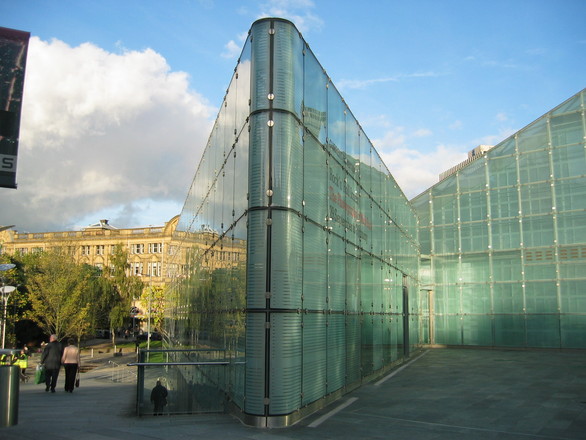
Summary: Another weekly summary, focusing on issues that pertain to or affect Free software in particular
THIS post looks at the past week's news and groups the news by topic.
Software Patents in India
The
patent maximalists from IAM wrote at the very beginning of this week that "India is becoming more receptive to software patents", despite the fact that
software patents are not allowed in India. IAM is framing India's policy as a bad thing: "Two subject areas have long dominated critiques of the Indian patent system by foreign (and especially US) companies and government bodies: pharmaceuticals and software. But, the recent release of new guidelines for the examination of computer related inventions (CRIs) by the Indian Patent office (IPO) provides the latest sign that the country may be headed in a more software-friendly direction. That has the potential to affect not just filing activity in the country, but also efforts to sign up licensees there."
We have not seen this anywhere else in the media, only in IAM, which is strongly biased on favour of software patents. India is hopefully not falling into the software patents trap at the same time that the US is cracking down on software patents (court rulings post-
Alice and consequently new examination guidelines).
ITC Defends Microsoft
"For years, despite lack of fairness, the ITC has helped Apple (US-based company) ban rival imports."The 'International' Trade Commission is not international at all; it's a US apparatus for US megacorporations, as we have shown before. Now that Microsoft hypocritically complains the ITC defends one patent troll (Microsoft) from another (smaller) patent troll, based on several news reports [1, 2, 3, 4].
This whole episode mostly serves to show how biased the ITC really is. For years, despite lack of fairness, the ITC systematically helped Apple (a US-based company) ban rival imports. This affected only rivals from east Asia. The ITC bureaucracy ought to be challenged. Who does it really serve?
Patent Bias
Watch patent lawyers and propagandists at
IP Watchdog pretending everything is great and that
even patents on business methods are possible, post-
Alice. They're asking questions like, "Are Patents Getting Their Mojo Back?" Well, the very opposite is true.
Prof. Mark Lemley of Stanford Law School recently
came up with an eye-catching headline, "Faith-Based Intellectual Property". It's the title of a paper whose abstract bemoans policies that are based on dogma rather than reality. The abstract states: "The traditional justification for intellectual property (IP) rights has been utilitarian. We grant exclusive rights because we think the world will be a better place as a result. But what evidence we have doesn’t fully justify IP rights in their current strong form. Rather than following the evidence and questioning strong IP rights, more and more scholars have begun to retreat from evidence toward what I call faith-based IP, justifying IP as a moral end in itself rather than on the basis of how it affects the world. I argue that these moral claims are ultimately unpersuasive and a step backward in a rational society."
The term "faith-based IP" (ignoring facts, embracing dogma) resembles the terms often used in the copyright debate, where the wishes and the interests of the very few (moguls and middlemen) outweigh public interests. It's class war. Controversial new laws are being used to authorise passage of wealth and power to few plutocrats' hands -- plutocrats who also happen to bribe politicians for these laws to be passed.
Meanwhile, a plutocrats' oppressive tyranny uses a famous casino's hotel (I was there earlier this year just to look around) in order to harbour more ‘IP’ nonsense, as covered by
IP Kat (with its
new policy for comments) in a four-part series [
1,
2,
3,
4], concluded by
this final (belated) part. Watch how lawyers collude or conspire in super-expensive places to just monopolise things; public input has zero impact on their decisions or findings.
PTAB Versus Kyle Bass
Kyle Bass
was mentioned before, but rarely regarding the patent pressure he was using to crash companies (we covered this once before, but not in great depth). According to
this, "Kyle Bass, the hedge fund manager who filed a number of inter partes review petitions against pharmaceutical companies, has struck terror into the shriveled hearts of the pharmaceutical industry. The first petitions he filed were against Acorda Therapeutics, and its stock dropped on the news.
"The pharmaceutical industry immediately started lobbying to change IPR procedures to make themselves invulnerable. Senator Coons even offered an amendment to the PATENT Act to block IPR petitions from anyone who hasn’t been sued for patent infringement. (The amendment failed.)"
PTAB's involvement is noteworthy here. There's more about PTAB
in IP Kat and
bigger sites for lawyers [
via]. To quote the most prominent article: "Kamholz was on the front lines as the America Invents Act (AIA) remade the PTAB and created new proceedings that revolutionized patent litigation. About 60 new administrative judges, many with prestigious resumes in private practice and government service, have joined about 25 veterans of the PTAB’s predecessor, the Board of Patent Appeals and Interferences, to take on most of the inter partes reviews (IPRs) and covered business method reviews to date."
Here too we have patents being used by billionaires (or at least millionaires) to rig the market. When will more people out there realise who the patent regime really serves?
⬆

